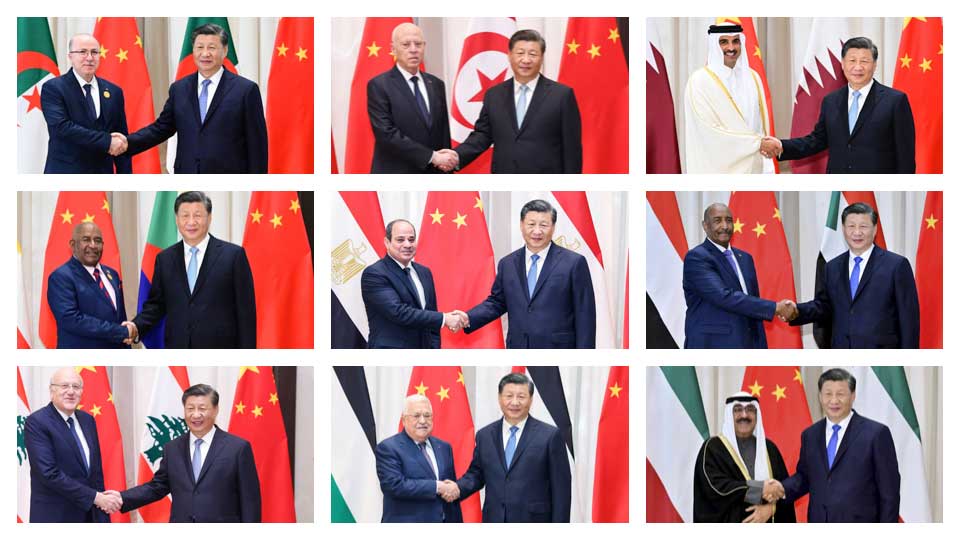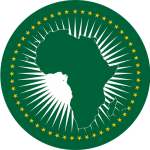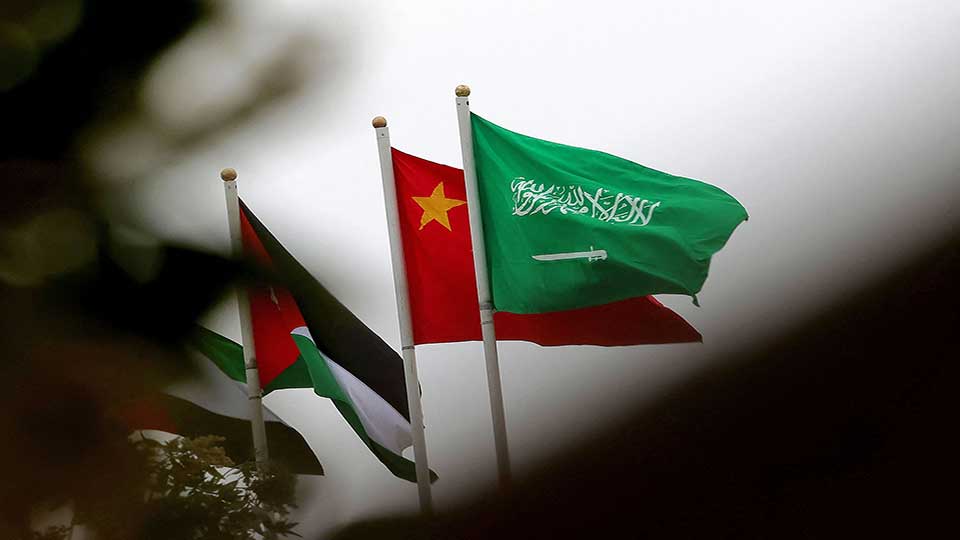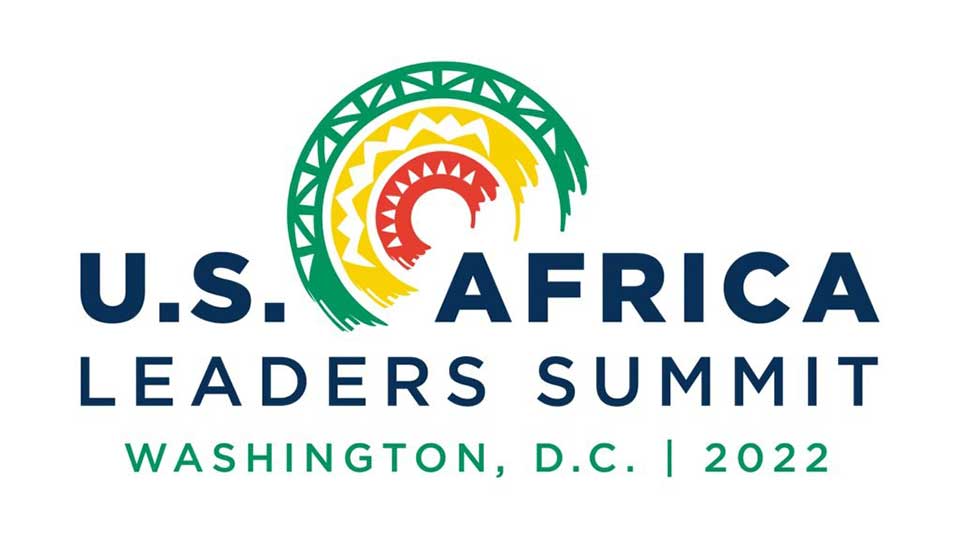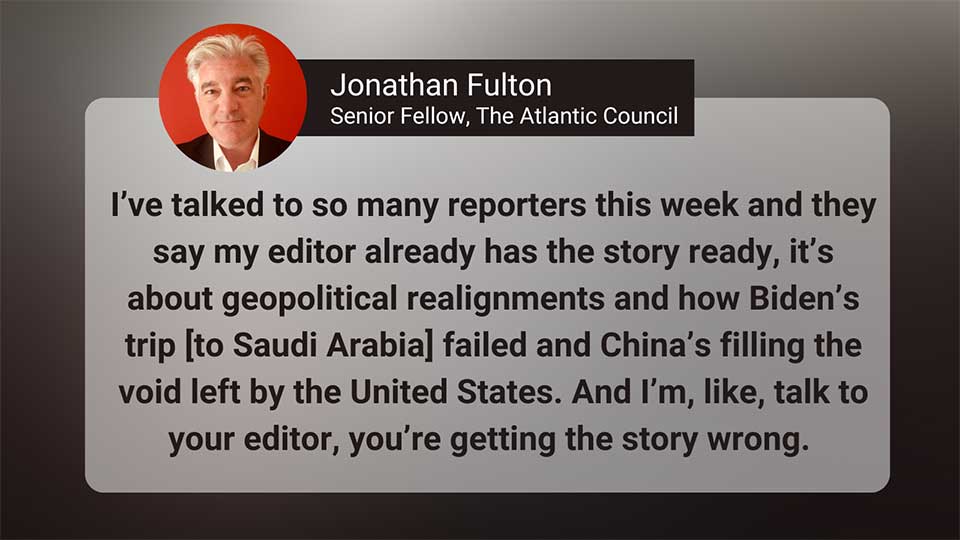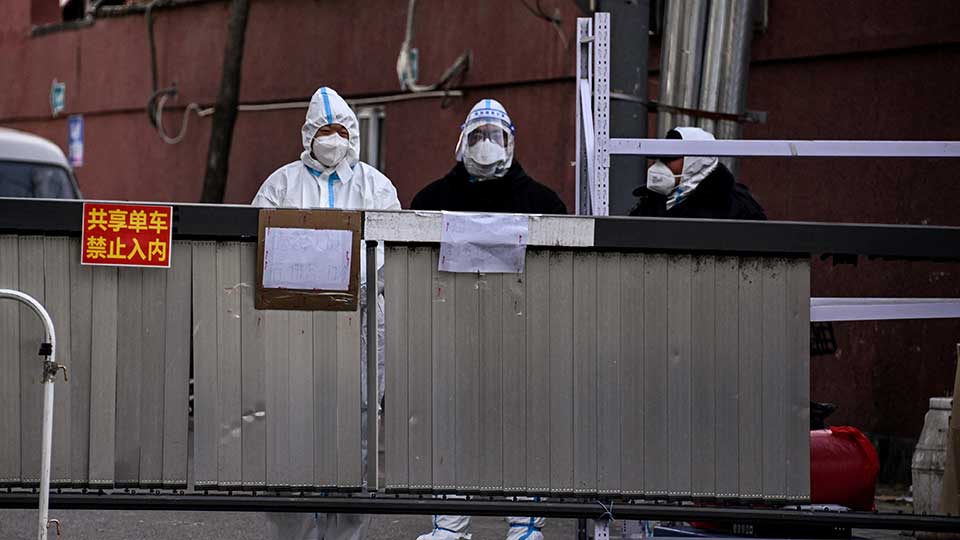Live Feed
The News Feed is curated by CGSP’s editors in Asia and Africa.
Somalia President Hassan Sheikh Mohamud was one of at least a dozen heads of state to do a brief meet-and-greet with Xi Jinping during the China-Arab summit in Saudi Arabia on ...
Contrasting U.S. and Chinese Diplomatic Styles on Full Display This Week
It’s rare for the U.S. and China to host major regional summits less than a week apart. But with the U.S.-Africa Leaders Summit set to get underway in Washington, D.C., just a few ...
Media Frustrates White House Efforts to Avoid Making This Week’s Africa Summit About China
Senior African policy officials in the White House and State Department have been adamant that this week’s African leaders summit is about Africa… not China. But the international news media doesn’t appear to ...
Asia, Not Africa Most Likely Region For China to Set Up New Overseas Military Base, Says Rand Report
Four countries in Asia have been identified by researchers in the United States as the most likely places where China will set up a new military outpost. The findings by ...
China Launches New Site Dedicated to Belt and Road News in Africa
China’s state-run Xinhua news agency launched a new online portal that is ostensibly intended to serve as a hub for Belt and Road information in Africa. The new site appears ...
Arab Media Expresses Optimism Towards the China-Arab Summit
Arab media showed optimism toward the China Arab Summit which kicks off Friday in Saudi Arabia. Only a few hours before its kick-off, Arab media says the summit reflects the “strong position” that ...
WEEK IN REVIEW: United States to Increase Its Military Force Presence in Northern Australia
The United States announced it will increase its military force presence in northern Australia in response to “China’s dangerous and coercive actions” in the Asia-Pacific region. Defense Secretary Lloyd Austin said on Tuesday the ...
Xi’s Saudi Trip Could Set the Scene for Long-Term Changes: Expert
While Chinese government spokespeople have called President Xi Jinping’s visit to Saudi Arabia ‘epoch-making,’ they’ve been a lot vaguer about the agenda for his meetings. However, Tang Tianbo, a ...
For the Western Press, Xi’s Saudi Visit is All About the United States
The China-Middle East expert Jonathan Fulton complained on Twitter this week that many editors at major Western news outlets seem to have pre-decided their framing of Xi Jinping’s visit to Saudi ...
Washington and Beijing have Very Different Takes On Next Week’s U.S.-Africa Summit
Preparations are ramping up for next week’s U.S.-Africa leaders’ summit. 13-15 December will see leaders from 49 countries, as well as numerous businesspeople, civil society envoys, and journalists descending on ...
Western Calls to De-Risk African Projects Echo China’s Approach
One of the underlying factors driving Chinese business in Africa is the role of state insurers like Sinosure in reducing the risk taken on by Chinese companies. So it’s interesting to ...
$30 Billion of China-Saudi Deals to Be Signed During Xi’s Visit to the Kingdom
Chinese and Saudi Arabian officials will sign $29.62 billion worth of commercial deals this week during President Xi Jinping’s three-day visit to the Kingdom. In all, some 20 agreements will be inked, according ...
China-Saudi Trade is Booming… And Not Just Because of Oil
The obvious reason for Xi Jinping’s trip to Saudi Arabia is to foster closer ties with one of China’s largest oil suppliers (Russia and Saudi Arabia have been battling for the top spot ...
Beware of the Simple Media Narratives Warns China Scholar About Xi Visit to the Mideast
Atlantic Council Senior Fellow Jonathan Fulton has some advice for journalists covering Xi Jinping’s visit to Saudi Arabia: don’t fall for the simple narrative that this trip is about some kind of Great ...
With Xi Jinping Back on the Road, Ryan Hass Reflects on Where Chinese Diplomacy Goes From Here
Now that China is beginning to relax its draconian Zero COVID policies and President Xi Jinping has emerged from three years of diplomatic hibernation, Ryan Hass, a top China scholar at the Brookings ...
The China-Arab Summit: Arab Press Highlights the Need for Economic Partnerships and Political Alliances
Arab and regional press widely focused on the China-Arab summit scheduled this week in Saudi Arabia, highlighting its importance as a “turning point in the history of Sino-Arab relations.” Several writers shared their ...
Chinese-Built Cross-Frontier Hydro System Inaugurated in Mali
This weekend saw the inauguration of the Gouina Hydroelectric dam and Malinguina hydropower station in Mali. Funded by the China Exim Bank and built by PowerChina, the facilities form ...
African Leaders Commemorate Jiang Zemin
African heads of state, ministers, and other high-ranking officials from countries as far afield as Equatorial Guinea and Burundi visited Chinese embassies and missions ...
What’s at Play in Xi Jinping’s Upcoming Visit to Saudi Arabia?
Chinese President Xi Jinping will reportedly travel to Saudi Arabia this week for a state meeting and to attend the inaugural China-Arab Summit. This is a particularly important visit as Xi returns to ...
Why the Persian Gulf is China’s “New Africa”
Fifteen years ago, Africa supplied a third of China’s imported oil and was a key recipient of foreign investment beyond its near abroad in east Asia. Today, a large portion of that energy ...
U.S. Officials Are Working Hard to Keep China Off the Agenda of Next Week’s Africa Leaders Summit
The White House is working hard to make sure that China does not become a topic of conversation at next week’s U.S.-Africa leaders summit that will take place in Washington, D.C. “Our goal ...
China Playing “Aggressive Game” in Africa and the World, Says U.S. Trade Rep Katherine Tai
The top U.S. trade official, Katherine Tai, acknowledged that Washington is increasingly facing difficulties in Africa and other regions because China, not the U.S., is most countries’ largest trading partner.
Partially Chinese-Financed Hydropower Dam Cuts Power Deliveries to Zambia, Zimbabwe Due to Lack of Water
Environmentalists have warned for years that southern Africa’s Chinese-financed hydroelectric building binge would eventually collide with the reality that the region doesn’t have enough water. Officials at the Zambezi River Authority ...
Buhari Lays Cornerstone For Chinese-financed ECOWAS Headquarters in Nigeria
Nigerian President Muhammadu Buhari led a groundbreaking ceremony for the new Chinese-financed headquarters of the West African regional organization ECOWAS. The new $32 million facility will be entirely paid for by ...
With Apple Reducing Its Manufacturing Dependence on China, Why is So Much Going to Asia and So Little to Latin America?
Apple is reportedly moving faster to relocate more of its production to countries outside China and reduce its longtime dependence on Taiwan-based contract manufacturing giant Foxconn. Eventually, the Cupertino-based electronics ...
WEEK IN REVIEW: Saudi Arabia to Mark Chinese President Xi Jinping’s State Visit Next Week With a China-Arab Summit
Saudi Arabia will mark Chinese President Xi Jinping’s state visit from 7 to 9 December with a China-Arab summit, according to Saudi diplomats. Invitations to Middle Eastern and North African leaders have reportedly already ...
Xi’s Third Term Will Power Up Chinese Messaging in Africa
Xi Jinping’s third term will likely see the re-energizing and reshaping of China’s external relationships after its COVID lockdown. But how will China’s political engagement with Africa evolve? In a ...
Zambia Hopes for Debt Deal by Q1 Next Year
The International Monetary Fund’s head of strategy, Ceyla Pazarbasioglu, will travel to Beijing next week for meetings with Chinese officials as part of a push for progress on Zambia’s debt restructuring. ...
Djibouti Has a Very Specific Debt Problem…
Djibouti this week reportedly suspended debt repayments to its two major creditors, China and Kuwait, due to a major increase in debt servicing costs likely caused by interest rate hikes and ...
China’s COVID Chaos Bites South African Trade
China’s COVID-related shutdowns and protests are hitting South African businesses. The Johannesburg Chamber of Commerce and Industry (JCCI) said the disruptions compounded earlier delays on the SA side. “China is responsible ...
Introducing CGSP Intelligence
CGSP Intelligence gives you the information advantage on Chinese activities in the Global South. CGSP Intelligence is launching in Summer 2025, with analysis and a full set of data tools designed for corporate and enterprise leaders.




